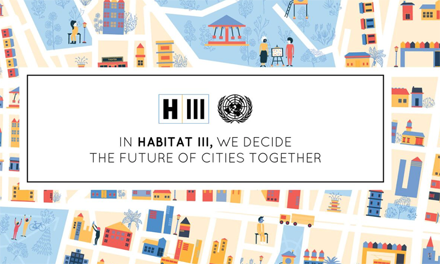IFLA brief on the HABITAT III New Urban Agenda
21 October 2016

HABITAT, a platform which gathers every 20 years to shape the future of human settlements, has issued its Quito Declaration on sustainable cities and human settlements for all – the New Urban Agenda.
The Agenda recognises that by 2050:
The world urban population is expected to nearly double, making urbanization one of the 21st century’s most transformative trends. As the population, economic activities, social and cultural interactions, as well as environmental and humanitarian impacts, are increasingly concentrated in cities, this poses massive sustainability challenges in terms of housing, infrastructure, basic services, food security, health, education, decent jobs, safety, and natural resources, among others.”
The International Federation of Library Associations and Institutions (IFLA) welcomes the New Urban Agenda and underlines the need for the library community to step forward to help governments to recognise the potential of libraries in achieving the aims of the Agenda. As IFLA has clearly stated in the Lyon Declaration on Access to Information and Development (2014), libraries provide safe spaces, give access to information and Information and Communication Technologies (ICTs), safeguard cultural heritage, encourage intercultural dialog, and provide support for education, literacy and reading.
IFLA has prepared this background brief to help understand the issues raised in the Quito Declaration, and the areas where libraries can contribute.